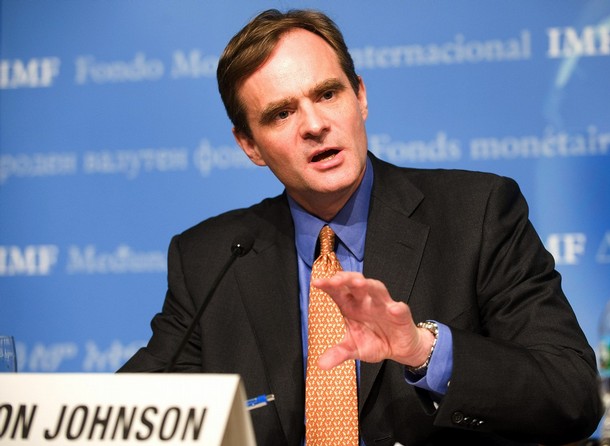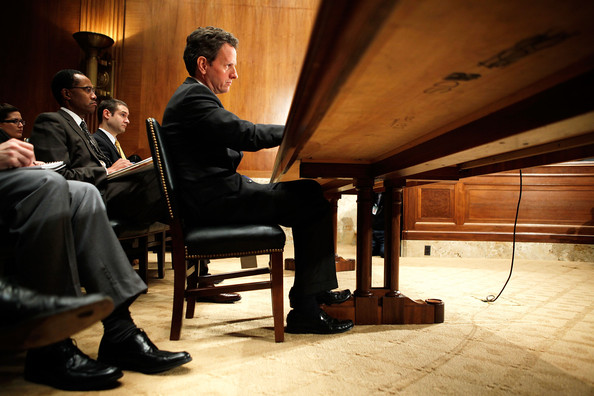
It's raining global bankster bullshit...
---
See the rest of the photos - 25 pics - all black & white...
Make sure to see #12 and #13...
---
Several videos at the bottom of the story...For background for the article below, see this...
---
This is a very long piece, but well worth your time.
Guest post from Gabriel Donohoe
Editor's Note: Look for the Hank Paulson & Bilderberg references...
Source - Fool's Crow
The Irish Government has recently passed the harshest budget in the history of the State with further austerity promised for the next three years and perhaps for decades. Prime Minister Brian Cowen and Finance Minister Brian Lenihan have steered Ireland from the booming prosperity of a Celtic Tiger to a ruined shell of a country where unemployment, poverty, emigration, and despair are proceeding to destroy a once proud, industrious people.
Cowen and Lenihan also bear the ignominy of having brought in the International Monetary Fund who, along with EU banksters, are now dictating Irish fiscal policy. The IMF has long had a vulturish reputation for plundering weaker countries by stripping the flesh of its victims down to the bare bones. This repulsive scavenger is well known for promoting austerity and misery, grabbing national assets for its bankster and corporate friends, and leaving the skeleton of a country’s economy in its wake. The first piece of offal to be plucked from the Irish carcass by this opportunistic carrion eater was the nation’s €20 billion pension fund, the life savings of working people.
As a result of Ireland’s dramatic reversal of fortune the names of Brian Cowen and Brian Lenihan are now being reviled as the villains who inflicted horrendous financial disaster upon the Irish people and forced the enslavement of future generations to a criminal cadre of International Banksters.
The words ‘treason’, ‘traitors’, and ‘treachery’ are being increasingly used not only by ordinary citizens but also by certain politicians, economists, business leaders, and celebrities. ‘Economic treason’ was a term used by the leader of the Labour Party to describe Cowen and Lenihan’s blanket guarantee to the banks. And, incredibly, even the country’s ostensibly non-partisan police association, the GRA, accused the government of ‘treachery’ and denounced it as a ‘government of national sabotage’.
Today, Cowen and Lenihan are being compared to other traitors in history like Vidkun Quisling, a Norwegian politician who assisted the Nazis to conquer his native country; General Benedict Arnold, an American soldier who changed sides during the Revolution and betrayed his country to the British; and even Judas Iscariot, who betrayed his Master for 30 pieces of silver.
In Ireland, the names of Cowen and Lenihan now evoke the same revulsion as that reserved for Dermot MacMurrough, a 12th century King of Leinster who has been loathed for over 8 centuries as the man who brought the first English invaders to Ireland. In 1167, after a dispute with other Irish kings which led to his forced exile, MacMurrough persuaded an English army under the command of the Earl of Pembroke, known as ‘Strongbow’, to invade Ireland and help him take his kingdom back.
MacMurrough died 3 years later and Strongbow declared himself the King of Leinster. Thus began the beginning of a British military occupation that would last for over 800 years and cause countless thousands of Irish deaths and condemn many generations of Irish men and women to utter misery, slavery, famine, and financial and religious tyranny. It is not easy for anyone to incite more odium in the hearts of the Irish people than that of the back-stabber Dermot MacMurrough.
And yet Brian Cowen and Brian Lenihan are reviled with the same detestation as that accorded the traitorous 12th century King of Leinster.
What did Cowen and Lenihan do to earn such public loathing?
On September 29th, 2008, a momentous event occurred. That evening, four of the most senior executives of Ireland’s two largest high street banks, Dermot Gleeson and Eugene Sheehy of Allied Irish Bank (AIB) and Brian Goggin and Richard Burrows of Bank of Ireland (BOI), called to Government Buildings for a hastily convened meeting with the Prime Minister, Brian Cowen, and the Minister for Finance, Brian Lenihan. Also present was the Irish Attorney-General, Paul Gallagher.
The banksters were frantic. As the property bubble was beginning to burst, their main rival, Anglo Irish Bank, was in serious trouble and the huge loss of liquidity could bring down the country’s entire financial system. Like Anglo Irish, AIB and BOI also had massive exposure to the developers and all were in danger of imminent collapse. The banksters implored the Government to do something, immediately, before the money markets opened the following morning.
Having received such stark news from the banksters, Cowen and Lenihan knew they had to move quickly and decisively. They would have to act, and be seen to act, without bias and without favouring any special interest groups. Their first duty was to ensure the welfare of the nation as a whole and to safeguard the financial interests of all the Irish people.
But in this they failed utterly. One special interest group, the banksters, prevailed spectacularly over the interests of the Irish people. How did the banksters manage to wield such inordinate influence over crucial governmental policy?
A key disturbing fact about this meeting was never commented upon in the mainstream media. On the government side of the table sat Paul Gallagher, the Attorney-General, legal adviser to the Irish Government. On the banksters’ side of the table sat Dermot Gleeson, the AIB chairman and himself a former Irish Attorney-General. But, apart from both men holding the senior law office of the land, a more sinister connection between them remained undisclosed. They were both Bilderbergers.
For those who haven’t heard of the Bilderbergers, they are a brotherhood of unelected international banksters, corporatists, politicians, and others who meet secretly every year to formulate and manipulate world policy in finance, economics, trade, and any other area that they can control for their own selfish, globalist interests.
It may well be that the presence of the two Bilderbergers, Gleeson and Gallagher, was just a coincidence but, considering such incredibly high stakes, it can be argued that Gallagher’s attendance as Attorney-General at such a crucial meeting generated a monumental conflict of interest. His Bilderberger connection clearly compromised him as legal adviser to the Irish Government, especially when his Bilderberger pal, Gleeson, was about to be on the receiving end of a whopping government bailout.
After a surprisingly short discussion with some members of the cabinet, the Attorney-General, and top civil servants, Cowen and Lenihan arrived at an ominous decision. They decided that the Government would guarantee all the liabilities of six Irish banks – not just customer and interbank deposits but also the full exposure of all bondholders! This amounted to some 450 billion euro, an astronomical figure which, if ever called upon, would destroy the country.
With the stroke of a pen Cowen and Lenihan shifted hundreds of billions of private debt incurred by greedy, fraudulent banksters and dumped it onto the backs of the Irish people. This was an incredible act of treachery against the Irish nation. What could possess these two politicians to put their people into impossible debt and penury – perhaps for generations – just to save a few mega-rich banksters from taking a loss on their reckless gambling? Was it utter ineptitude or was it something more sinister than that?
As Marcellus said to Horatio in Shakespeare’s Hamlet, ‘Something is rotten in the State of Denmark.’ He said ‘Denmark’, but he might well have been describing present-day Ireland. This bank guarantee deal stinks to high heaven!
Inflicting a risk exposure of €450 billion on the Irish nation was tantamount to state suicide. The willing and needless placement of an entire people into such peril could only be the result of criminal incompetence or criminal collusion. There could be no other explanation, except, of course, criminal insanity. Take your pick. Are Cowen and Lenihan criminally inept, corrupt, or insane?
To put the enormity of the hazard to the nation into perspective let’s compare it to U.S Treasury Secretary Hank Paulson’s 2008 bank bailout of $700 billion which was then strenuously opposed by the great majority of the American people. The Irish bailout was the equivalent of more than $585 billion dollars, not a far cry from the $700 billion that so appalled and angered most Americans. Consider that the U.S. has a population of 300 million while Ireland only has a population of less than 4.5 million, much the same as the state of Louisiana.
At 3.30am the four bankers left. According to Shane Ross, author of Bankers, they had ‘put the gun to the Government’s head and the ministers had delivered.’
Ireland was aghast. Cowen and Lenihan said the bailout was necessary to preserve Ireland’s creditworthiness with ‘the markets’. This was hogwash and was said so by many people at the time, including leading economists. (The fallacy of the ministers’ thinking is borne out by the approach of the plucky Icelandic people who refused to take on private bankster debt and whose economy is now in a much healthier position than that of Ireland.) But Lenihan persisted with the bailout declaring that it would be ‘the cheapest bailout in history’. Those words, like the ghost in Hamlet, would soon come back to haunt him.
Cowen and Lenihan then proceeded to pour taxpayers’ money into the banks, capitalizing the high street lenders to the tune of some €13.5 billion. This figure did not even include the requirements of Anglo Irish Bank, the biggest culprit of fraudulent lending, who Lenihan said could be saved with a €4 billion bailout. As time progressed the Minister of Finance continually revised his figures upwards, going to €12 billion, €18 billion, €24 billion, and now the figure is hovering around €35 billion. The Irish people will never see a single cent of the tens of billions poured into that black hole that is Anglo Irish Bank. This cannot be described as anything other than an act of outrageous criminality.
Another fiasco in the making, the brainchild of Lenihan and Cowen, is NAMA (National Asset Management Agency), set up to restore the banks’ balance sheets by buying their toxic loans to the tune of some €54 billion of taxpayers’ money. This is another huge and needless risk that is likely to go disastrously wrong and which hangs eternally over Irish taxpayers like the Sword of Damocles. The slightest miscalculation and the sword falls – with devastating effect.
This writer, and many others, pointed out at the time that there was a much better short-term solution to the Irish banking problem. The Government could have let the banks fail – that’s what happens in capitalism when businesses are reckless or make mistakes – and set up a state bank. A state bank could have created all the credit the country needed with a much, much smaller outlay. Through fractional reserve lending, a bank can create some twelve and a half times the amount of credit that it holds in assets. For example, if a state bank is capitalised with €10 billion it can lend out €125 billion. With only €20 billion in capital a state bank could create and lend out €250 billion. This would have boosted Irish businesses and given the economy a huge injection and would have obviated the need to go back to the exploitative money markets.
(It is important to point out that this would be a short-term solution only. The real cause of global financial chaos and prohibitive national debt is the permitting of private banking cartels to create a nation’s money, money that is based on debt and bears interest and which makes an immense fortune for the international banksters – to the impoverishment of the people.)
But Cowen and Lenihan seemed not to be focussed on what was good and efficacious for the people of Ireland but on how to save a few criminal banksters from incurring gigantic losses.
Before the bank guarantees, Ireland had a manageable sovereign debt. But after taking on the private debts of reckless, fraudulent banksters Cowen and Lenihan drove Ireland into insolvency. Interest on Irish government bonds rose dramatically and threatened to destabilise the Euro. Uncertainty about Ireland’s ability to handle its deficit caused unrest in Portuguese and Spanish bond markets. There were concerns too about Belgium and Italy. The EU, fearful that panic and contagion would spread and collapse the Euro, bullied the Irish Government into taking a joint EU/IMF bailout. The high placed members of the self-serving Brussels elite were willing to impose hardship and needless austerity upon the people of Ireland in order to save their precious Euro and to preserve their positions of opulence and power.
The Irish economy per se did not need a bailout, but Irish banks did. The IMF does not lend to banks but only to sovereign countries. (That way, they can force a country to bleed its taxpayers to get their money back.) Cowen and Lenihan then proceeded to sell the idea of an EU/IMF loan to the country as a ‘rescue package’ for the Irish nation. This was a complete lie. It was a rescue package mainly for German, British, and French banks who had recklessly and greedily loaned billions to Irish banks during the Celtic Tiger boom.
David McWilliams, Irish economist, broadcaster, and writer, says of the IMF, ‘It is not here to bail us out; it is here to bail [the banks] out. The bailout is a bailout for the banks of Germany and France and the Irish taxpayer foots the bill. It is that simple. And where will the EU and IMF money come from? It will be borrowed from the very investment banks that will be bailed out. So they will get interest payments from us, in order that we pay for their mistakes.’
This view is echoed by Dr. Constantin Gurdgiev, adjunct lecturer in Finance at Trinity College, Dublin, who likens the ECB/IMF bailout to ‘corporate welfare’ (as opposed to social welfare). ‘It’s worse than corporate welfare, it’s corporate welfare with a massive moral hazard loaded on top. This is an undemocratic, corporatist transfer of wealth from ordinary citizens to a tiny group of people: bank bondholders…’
Just who are these precious bondholders that Cowen and Lenihan would bind and bankrupt the country in order to make up their ‘gambling’ losses?
Senator and presidential hopeful David Norris tried to read out their names under parliamentary privilege in the Irish Senate but was quickly silenced. It seems that Cowen and Lenihan and the Irish Government do not want the people to know that they have been put into debt slavery for the benefit of some of the wealthiest, most fraudulent banksters in the world. The names of these bondholders are now a matter of public record, thanks to investigative journalists like Guido Fawkes (www.order-order.com).
Some of the more familiar names among the four score or so major bondholders are Goldman Sachs, one of the most despised banks on Wall Street whose name is synonymous with greed, sleaze, and fraud. Max Keiser, broadcaster and former broker & options trader, says, ‘Goldman Sachs are scum. I mean that’s the bottom line. They have basically co-opted the U.S. Government, they have co-opted the Treasury Department, the Federal Reserve functionality. They’ve co-opted the Obama administration. And Barack Obama dances to Goldman Sach’s tune. They are really crooked and abominable in what they’ve done.’
Keiser continues, with remarkable candour, ‘Just remember, Hank Paulson held Congress hostage, took them in the back room and said give us $700 billion or we’re gonna crash the market. He’s an arsonist; he’s an outlaw. And yet he’s given praise. If you go down the list, they’re all Goldman Sachs scum, whether it’s Hank Paulson, whether it’s Geithner…you know Geithner has very strong ties to Goldman Sachs…and of course all these banking bonuses are paid out to all their cronies who are Goldman Sachs scum.’
Another Anglo Irish Bank bondholder is the Rothschilds Bank, Zurich; the Rothschild family are reputed to have owned half the wealth of Europe a century and a half ago – how much do they own now? And most of the remaining bondholders are worth an accumulation of some twenty trillion euro. An Irish default would involve such an insignificant fraction of their wealth that it would hardly cause them to raise their eyebrows. Yet Cowen and Lenihan forced crippling debt upon the Irish people for many years to come in order to repay the banksters every single cent of their reckless investments.
One great irony amid all this debt and despair is the great wealth recently discovered in the gas fields off the west coast of Ireland. The Corrib gas field alone is reckoned to be worth well over €420 billion, enough to pay off all of Ireland’s debts and make the country vastly rich. According to the Petroleum Affairs Division there is even more gas and oil off the west coast, perhaps as much as 13 trillion euro or beyond, enough to make millionaires of every man, woman, and child in Ireland.
What did the Irish Government do with this €420 billion windfall from the Corrib field? They gave it away to Royal Dutch Shell for nothing. Yes, nothing! In an incredible move, the government cut the State’s share from 50% to zero on all its offshore oil and gas and abolished all royalties.
Why would they do such a crazy thing?
For an answer to that you’ll have to ask the then minister, Ray Burke, who was later convicted and jailed for political corruption on other matters.
Royal Dutch Shell, with its monthly revenues fluctuating between $25 billion and $45 billion, certainly doesn’t need the money as much as the Irish people do. Royal Dutch Shell is a key Bilderberg asset; its principal shareholder is Queen Beatrix of Holland, a long-time member of Bilderberg which was founded by her father, Prince Bernhard, a former officer of Hitler’s SS. Giving these plutocrats billions, and perhaps trillions, in oil and gas for absolutely nothing is criminally obscene and utterly enraging. These energy resources rightfully belong to the Irish people and it’s not for individual politicians, whether corrupt or incompetent, to give them away for nothing.
Looking forward, there will soon be a new government in Ireland. It is now time for the Irish people to take a firm stand. In the coming election campaign they must warn incoming government hopefuls that there HAS to be radical change. The criminal pledges of an outgoing government of traitors MUST be dismantled and consigned to the trash can, along with their authors. The people will not stand for more of the same old bullshit gombeen politics; they are in no mood for mealy-mouthedness or ineffectual tinkering with a failed system. They demand nothing less than clear, decisive, and even ruthless change. They demand leaders of integrity, innovation, and courage. And they demand a decent living for themselves, their children, and future generations yet unborn. There can be no going back!
Pecunia, si uti scis, ancilla est; si nescis, domina. (If you know how to use money, money is your slave; if you don’t, money is your master.)
##
Jimmy Rogers on Ireland...
Video: Per usual, Jimmy Rogers tells the undeniable truth...
Even better, he never mucks around with airtime. This is a solid 2 minutes of pain for bank-bullshitting fear mongers on both sides of the Pond.
#
#
Watch this one...
This is outstanding...
---
Spoiler ALERT -- Do not miss #7:
---

It's raining global bankster bullshit...
See the rest of the photos - 25 pics - Make sure to see #12 and #13...
---
Heads up - Fans of women's swimming (and high heel shoes) might want to make sure to see pic #4...
---
Spoiler ALERT -- Do not miss #7:
---






